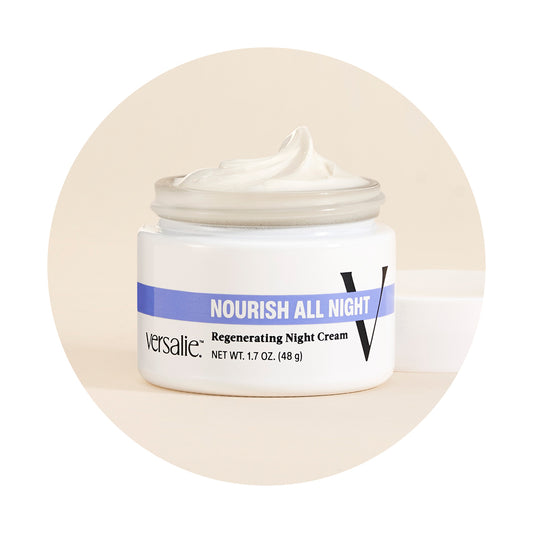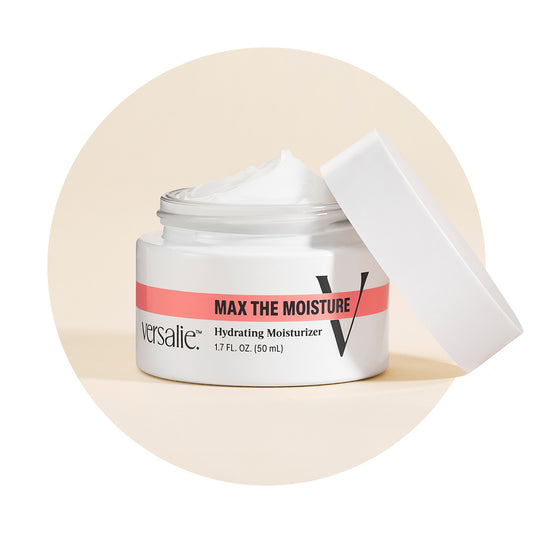Have you been feeling a roller coaster of emotions lately? Do you find yourself getting angry, happy, and then depressed without much notice? If so, you might be part of the 33% of people going through menopause that experience sudden changes in mood (mood swings). Changes in mood is one of the first symptoms that someone may start experiencing during perimenopause.
Sometimes we know what event or experience may have shifted our moods. Other times, it feels like they come out of nowhere. We all have shifts in mood from time to time, but if it’s happening frequently or disrupting your daily life, it may be time to talk to a healthcare professional about it.
Why do I have menopausal mood swings?
Neurotransmitters are the body’s chemical messengers that carry signals from one nerve cell to another nerve, muscle, or gland cell. Serotonin is a type of neurotransmitter that’s thought to help naturally regulate mood, happiness, and anxiety. And estrogen has an effect on how much serotonin is “sent” throughout the nervous system.
As the levels of estrogen fluctuate during perimenopause and menopause, the levels of serotonin can also change. This can cause changes in mood (mood swings) that can feel erratic and like they’re coming out of nowhere.
In addition to estrogen, fluctuating progesterone levels during menopause can disrupt serotonin production, leading to more changes in mood.
The close connection between estrogen and serotonin can help us understand why the terms “hormonal” and “mood swings” are so closely tied together and why certain times (menstrual cycles, puberty, pregnancy, menopause) are associated with those changes in mood.
In addition, fluctuating levels of progesterone can also contribute to mood swings. After your late 30’s, progesterone levels decline as you age. Progesterone breaks down to allopregnenelone, which is a natural anti-depressant. So, less progesterone can sometimes mean more anxiety, especially prior to your menstrual cycle.
So, during menopause, as levels of estrogen change, how happy, anxious, or sad we feel will also change.

What can make mood swings worse?
The years that we’re going through perimenopause and menopause can also bring challenges that make managing emotional problems more difficult. There’s a lot going on during this phase of life — extra stress, work or relationship challenges, caregiving for children or older family members, multiple other forms of change — that can make managing menopausal mood swings feel more difficult.
In addition, some of the following can make mood swings worse or make it more difficult to cope with them:
- If you’ve previously been diagnosed with depression or anxiety, you may find that you’re more likely to experience mood swings during menopause.
- Not getting enough quality sleep can also worsen mood. Anyone struggling with anxiety or depression symptoms may also have poor sleep.
- Using alcohol or other drugs to cope with your mood swings can actually make them worse and make it more difficult to manage.
If you’re struggling with any of these, reach out to a medical professional for help.

How to manage menopause mood swings
There’s no magic pill for helping prevent or manage changes in your mood. But general healthy behaviors can also help your mood:
- Eat a balanced, healthy diet. Taking a balanced, healthy approach to eating can help many parts of our health at any stage of life. To help with menopausal mood swings, it’s especially important to make sure you’re including adequate amounts of protein and omega-3 fatty acids.
- Try to get enough sleep. As you might already know, not getting enough quality sleep can make irritability and mood swings worse. We all know it’s harder to deal with challenges when you haven’t slept well. And you may not be sleeping well, so it can be a vicious cycle.
- Get regular physical activity. This is great for both our mental and physical health. Being active can help relieve stress, improve mood, and can often give us time to either process through our problems or take a break from them for a while.
- Find healthy ways to deal with stress. It may take some time to find what works best for you. You might consider reading a good book, art or other forms of creativity, yoga or other exercise, meditation, deep breathing, walking outside, diving into a hobby, or journaling.
- Connect with others. Supportive relationships can help boost our resilience when we’re going through difficult times.
- Find hobbies and activities you enjoy. Finding things we enjoy doing — and making some time to do them — can help us feel better physically and mentally and make it feel easier to manage changing moods.
- Try some mind-body practices. Some people find that practices like tai chi, yoga, and meditation can help them feel more relaxed and make it easier to manage emotions and other menopausal symptoms.
- Talk to a counselor or therapist. Many people find it helpful to talk to a professional about the emotions and feelings they’re experiencing. Seek support if you need it.
- Prescription medications. Menopausal hormone therapy (MHT) (also known as HRT) may help treat mood swings. A healthcare professional can also prescribe medications to help with anxiety and depression. Talk to them about what might work best for you.
Talk to your healthcare professional if you have any questions or concerns.









